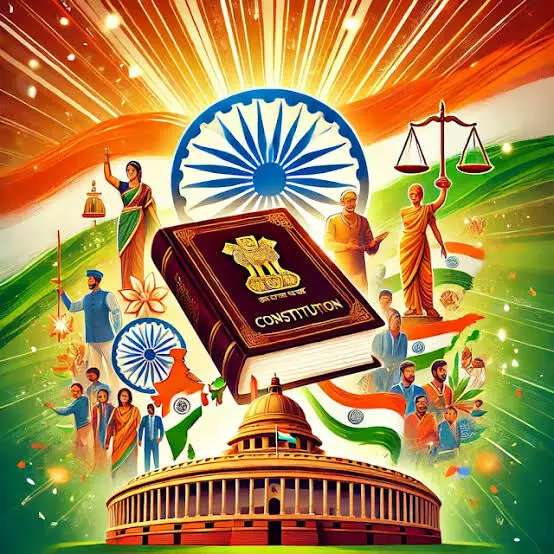Make Constitution Compulsory Subject in Schools, Colleges: Advocate Urges Govt
An advocate has urged the government to make the Indian Constitution a compulsory subject in schools and colleges. The move aims to educate citizens about their rights and responsibilities, strengthening India's democratic foundations.;

Legal Corrrspondent patna: In a letter to Union Education Minister Dharmendra Pradhan, Chhaya Mishra, Vice President of the Advocates Association, Patna High Court, has urged the government to make the Indian Constitution a compulsory subject in schools and colleges.
As India celebrates the 75th year of its Constitution, Mishra emphasized the importance of educating students about the fundamental principles and values enshrined in the Constitution. She pointed out that while law colleges teach the Constitution, students from other faculties are deprived of even basic knowledge about the Constitution.
Mishra suggested that teachings on the Constitution can be introduced at the school level, with basic features such as articles, directive principles, and fundamental rights being taught to students from classes six to eight. More detailed information, including amendments, can be provided to students between classes nine and 12 through textbooks and visits to law-making institutions.
"By incorporating the Constitution into the school curriculum, we can empower citizens with a deeper understanding of their rights and responsibilities, ultimately strengthening India's democratic foundations," Mishra said.
Key Provisions of the Indian Constitution
The Indian Constitution is a comprehensive document that outlines the framework of the country's governance. Some of its key provisions include:
Preamble: The Preamble is the introduction to the Constitution and outlines the fundamental principles and values of the Indian state.
Fundamental Rights: The Constitution guarantees certain fundamental rights to all citizens, including the right to equality, freedom, and justice.
Directive Principles of State Policy: These principles outline the goals and objectives of the state and provide guidance for policymakers.
Parliamentary System: The Indian Constitution establishes a parliamentary system of government, where the executive is accountable to the legislature.
Separation of Powers: The Constitution provides for the separation of powers between the executive, legislature, and judiciary, ensuring that no one branch of government becomes too powerful.
By making the Constitution a compulsory subject, the government can ensure that future generations of Indians are well-versed in the fundamental principles of democracy and governance.
Chhaya Mishra, Vice President
Advocates Association ,Patna High Court

